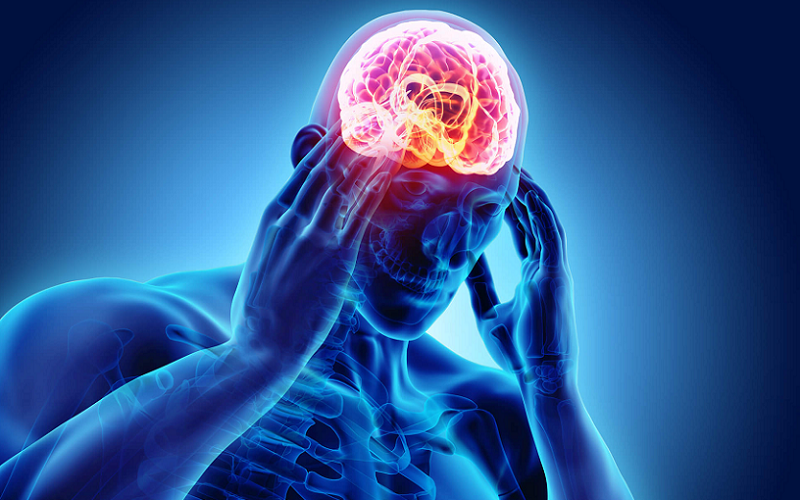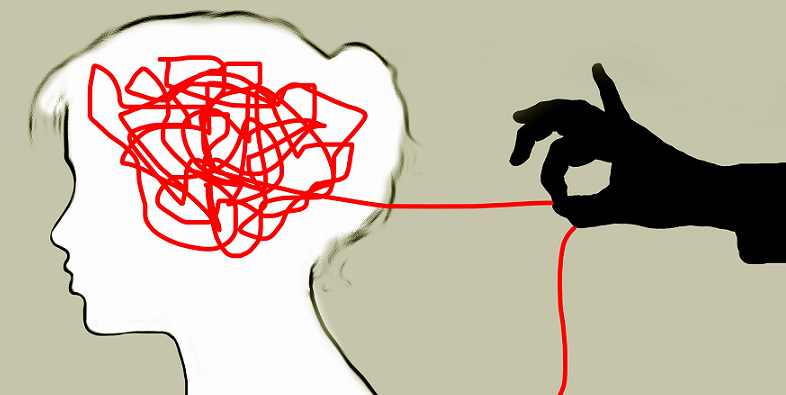
In today’s fast-paced world, stress has become an increasingly prevalent issue, taking a toll on both our mental and physical health. The intricate relationship between stress and the brain is crucial to understanding its impact on our lives. Here we shed light on the complex connection between stress and the brain, while also providing practical strategies for relief.
Contents
Introduction to Stress
Stress is a normal physiological response to situations that pose challenges, demand our attention, or threaten our well-being. It can be a driving force that helps us navigate life’s obstacles, meet deadlines, and solve problems. However, when stress becomes chronic or overwhelming, it can take a toll on our mental, emotional, and physical health.
In essence, stress is the body’s way of reacting to external and internal demands, activating a range of processes that prepare us to face challenges or escape perceived dangers. By understanding the nature of stress and its effects on our brain and body, we can develop strategies to manage it effectively and maintain a healthy balance in our lives.
The Connection Between Stress and Your Brain
The intricate relationship between stress and the brain plays a crucial role in our overall well-being. By understanding how stress impacts brain structure and cognitive function, we can develop effective strategies to manage stress and improve mental health.
The Stress Response
The stress response is a complex series of physiological reactions that occur in the body when we face challenges or perceive threats. This response is orchestrated by the brain, specifically by a region called the hypothalamus.
The hypothalamus is responsible for maintaining homeostasis in the body, regulating various functions such as temperature, hunger, and sleep [1]. When the brain perceives stress, the hypothalamus initiates the stress response by activating the sympathetic nervous system and the hypothalamic-pituitary-adrenal (HPA) axis.
The activation of the sympathetic nervous system results in the release of adrenaline and norepinephrine, hormones that prepare the body for the “fight or flight” response. These hormones increase heart rate, blood pressure, and glucose levels, providing the body with the energy needed to face the challenge or escape the threat. Concurrently, the HPA axis triggers the release of cortisol, a hormone that helps regulate the stress response and modulates various physiological processes, including immune function and metabolism.
The Impact of Stress on Brain Structure
Stress not only affects our body but also has a significant impact on the structure and function of our brain. Prolonged exposure to stress can lead to changes in the size and connectivity of various brain regions, which can, in turn, affect cognitive functions and emotional regulation.
Hippocampus
The hippocampus is a region of the brain involved in learning and memory formation [2]. Chronic stress has been shown to cause a reduction in hippocampal volume, which may contribute to impairments in memory and learning.
Amygdala
The amygdala is responsible for processing emotions, particularly those related to fear and anxiety [3]. Under chronic stress, the amygdala may become hyperactive and increase in size, leading to heightened emotional responses and a higher susceptibility to anxiety and mood disorders.
Prefrontal cortex
The prefrontal cortex is responsible for higher-order cognitive functions such as decision-making, problem-solving, and emotional regulation [4]. Prolonged stress can lead to a reduction in the size of the prefrontal cortex, resulting in difficulties with decision-making, impulse control, and emotional regulation.
How Chronic Stress Affects Cognitive Function
Chronic stress not only alters the structure of the brain but also impacts various cognitive functions, including memory, decision-making, and emotional regulation [5].
Memory
As mentioned earlier, chronic stress can reduce the volume of the hippocampus, leading to impaired memory formation and retrieval.
Decision-making
Stress can compromise the prefrontal cortex’s ability to process information, leading to poor decision-making and an increased likelihood of engaging in impulsive or risky behaviors.
Emotional regulation
Heightened stress levels can result in an overactive amygdala, making it more challenging to regulate emotions and increasing the risk of developing anxiety and mood disorders.
Mental health
Chronic stress is a significant risk factor for the development of various mental health issues, such as anxiety, depression, and burnout. By understanding the connection between stress and the brain, we can better manage stress and promote mental well-being.

Strategies for Stress Relief
Effectively managing stress is essential for maintaining optimal brain health and overall well-being. Here are some evidence-based strategies that can help alleviate stress and promote a balanced lifestyle.
Mindfulness and Meditation
Mindfulness is the practice of focusing one’s attention on the present moment non-judgmentally. Research has shown that mindfulness can help reduce stress, improve emotional regulation, and enhance cognitive function [6].
Various meditation techniques can help cultivate mindfulness, such as breath awareness, body scan, and loving-kindness meditation. Experiment with different techniques to find the one that works best for you.
There are numerous resources available, such as books, online courses, and apps, to help you learn and practice mindfulness and meditation.
Exercise
Regular physical activity has been shown to reduce stress levels, improve mood, and enhance cognitive function. Exercise can also increase the production of endorphins, which are natural mood elevators.
A variety of exercises can help relieve stress, such as aerobic activities (e.g., running, swimming), yoga, tai chi, and strength training. Choose activities that you enjoy and can incorporate into your daily routine.
Aim for at least 150 minutes of moderate-intensity aerobic activity or 75 minutes of vigorous-intensity aerobic activity per week, along with muscle-strengthening activities on two or more days per week.
Social Support
Having a strong social support network can help buffer the effects of stress and promote mental health. Social connections can provide emotional support, practical assistance, and a sense of belonging.
Cultivate and maintain relationships with friends, family members, colleagues, and neighbors. Join clubs, participate in group activities, or volunteer in your community to expand your social circle.
Don’t hesitate to reach out to your support network when you need help or someone to talk to. Sharing your feelings and concerns can alleviate stress and provide valuable insights.
Time Management
Effective time management can help reduce stress by enabling you to prioritize tasks, set realistic goals, and maintain a balanced schedule.
Some useful time management strategies include setting priorities, breaking tasks into smaller steps, delegating responsibilities, and setting aside time for relaxation and self-care.
Various tools and apps can help with time management, such as calendars, to-do lists, and project management software. Experiment with different tools to find the ones that best suit your needs and preferences.
Healthy Lifestyle Habits
A balanced diet that includes a variety of fruits, vegetables, whole grains, lean proteins, and healthy fats can help support brain health and reduce stress [7]. Avoid excessive consumption of processed foods, sugar, and caffeine.
Adequate sleep is essential for optimal brain function and stress management. Aim for 7-9 hours of quality sleep per night, and establish a consistent sleep schedule.
Excessive caffeine and alcohol consumption can exacerbate stress and negatively impact sleep quality. Limit your intake and consider healthier alternatives to help manage stress levels.

Nutritional Supplements That Reduce Stress for Cognitive Benefit
Several nutritional supplements have been suggested to help reduce stress and support cognitive function. Some of the supplements that have been linked to stress reduction and cognitive benefits are listed here.
Omega-3 Fatty Acids
Omega-3 fatty acids, particularly eicosapentaenoic acid (EPA) and docosahexaenoic acid (DHA), may reduce stress and support cognitive function through several mechanisms [8]:
- Anti-inflammatory effects: Chronic stress can increase inflammation in the body and brain, which can negatively impact cognitive function. Omega-3 fatty acids, especially EPA, have been shown to possess anti-inflammatory properties that may counteract the inflammatory effects of stress, thereby protecting brain health.
- Neuroprotection and brain plasticity: DHA is a major component of brain cell membranes and plays a crucial role in maintaining their structural integrity. Adequate levels of DHA in the brain can support neuronal function, promote brain plasticity, and provide neuroprotection against stress-related damage.
- Regulation of neurotransmitters: Omega-3 fatty acids can influence the synthesis and function of neurotransmitters such as dopamine, serotonin, and norepinephrine, which play essential roles in mood regulation, stress response, and cognitive function. By modulating neurotransmitter levels, omega-3s may help reduce stress and anxiety and improve cognitive performance.
- Reduction of cortisol levels: Some studies suggest that omega-3 fatty acids may help regulate cortisol, the primary stress hormone. By modulating cortisol levels, omega-3 supplementation may help mitigate the physiological effects of stress and promote overall cognitive health.
- Improved mood and mental health: Omega-3 fatty acids have been associated with improved mood and a reduced risk of depression and anxiety disorders. A better mood and mental health status can contribute to reduced stress and improved cognitive function.
Ashwagandha
Ashwagandha (Withania somnifera) is an adaptogenic herb that has been used in traditional Ayurvedic medicine for centuries to help the body cope with stress and promote overall well-being [9]. It may reduce stress and support cognitive function through several mechanisms:
- Regulation of cortisol levels: Ashwagandha has been shown to help regulate cortisol, the primary stress hormone. Elevated cortisol levels due to chronic stress can negatively impact cognitive function. By modulating cortisol levels, ashwagandha may help mitigate the physiological effects of stress on the brain.
- Reduction of oxidative stress: Oxidative stress can damage brain cells and impair cognitive function. Ashwagandha has antioxidant properties that may help protect brain cells from oxidative stress and support cognitive health.
- Neuroprotection: Some research suggests that ashwagandha may have neuroprotective effects by promoting the growth and survival of neurons, preventing neuronal damage, and supporting the repair and regeneration of brain cells. This neuroprotection may help maintain cognitive function under stress.
- Anxiolytic and antidepressant effects: Ashwagandha has been shown to have anxiolytic (anxiety-reducing) and antidepressant properties, which may help improve mood, reduce anxiety, and promote a sense of well-being. Improved mental health can contribute to reduced stress and better cognitive function.
- Enhancement of cognitive performance: Some studies have demonstrated that ashwagandha supplementation can improve cognitive performance in areas such as memory, attention, and executive function. By enhancing cognitive performance, ashwagandha may help counteract the negative effects of stress on cognitive function.
L-theanine
L-theanine is a non-protein amino acid found primarily in green tea leaves (Camellia sinensis). It has been associated with stress reduction and cognitive benefits through several mechanisms [10]:
- Promotion of relaxation: L-theanine has been shown to increase the production of alpha brain waves, which are associated with a state of relaxed alertness. By promoting relaxation without causing drowsiness, L-theanine may help reduce stress and anxiety.
- Modulation of neurotransmitters: L-theanine can influence the levels and function of various neurotransmitters, such as serotonin, dopamine, and gamma-aminobutyric acid (GABA). These neurotransmitters play essential roles in mood regulation, stress response, and cognitive function. By modulating neurotransmitter activity, L-theanine may help reduce stress and improve cognitive performance.
- Reduction of cortisol levels: Some research suggests that L-theanine may help reduce cortisol levels, the primary stress hormone. By modulating cortisol levels, L-theanine may mitigate the physiological effects of stress on the brain and cognitive function.
- Enhancement of cognitive performance: L-theanine has been shown to improve cognitive performance, particularly when combined with caffeine. Some studies have demonstrated that L-theanine can enhance attention, focus, and reaction time, potentially counteracting the negative effects of stress on cognitive function.
- Improved sleep quality: Although L-theanine does not cause drowsiness, it has been associated with improved sleep quality, which is essential for optimal cognitive function and stress management. Better sleep may help reduce stress levels and support overall cognitive health.
Bacopa Monnieri
Bacopa monnieri, also known as Brahmi, is an herb used in traditional Ayurvedic medicine for its cognitive-enhancing and adaptogenic properties. It may reduce stress and support cognitive function through several mechanisms [11]:
- Adaptogenic effects: Bacopa monnieri is considered an adaptogen, which means it helps the body adapt to stress and maintain balance. By enhancing the body’s resilience to stress, Bacopa may help reduce the negative effects of stress on cognitive function.
- Modulation of neurotransmitters: Bacopa monnieri has been shown to influence the levels and function of various neurotransmitters, such as serotonin, acetylcholine, and dopamine. These neurotransmitters play essential roles in mood regulation, stress response, and cognitive function. By modulating neurotransmitter activity, Bacopa may help reduce stress and improve cognitive performance.
- Antioxidant and neuroprotective effects: Bacopa monnieri contains compounds called bacosides, which have antioxidant and neuroprotective properties. These compounds can help protect brain cells from oxidative stress and support the repair and regeneration of neurons. By promoting brain health, Bacopa may help maintain cognitive function under stress.
- Anxiolytic and antidepressant effects: Some research suggests that Bacopa monnieri has anxiolytic (anxiety-reducing) and antidepressant properties. By improving mood and reducing anxiety, Bacopa may contribute to reduced stress and better cognitive function.
- Enhancement of cognitive performance: Several studies have demonstrated that Bacopa monnieri supplementation can improve various aspects of cognitive performance, such as memory, attention, and learning. By enhancing cognitive performance, Bacopa may help counteract the negative effects of stress on cognitive function.
Coping Mechanisms for Stressful Situations
Effectively managing stress during high-pressure situations is crucial for maintaining mental health and cognitive function. Here are some practical coping mechanisms to help you navigate stressful situations:
Deep Breathing Exercises
Deep breathing exercises can help activate the parasympathetic nervous system, which is responsible for the body’s relaxation response. This can reduce stress and anxiety in the moment.
Examples of deep breathing techniques include diaphragmatic breathing, 4-7-8 breathing, and box breathing. Practice different techniques to find the one that works best for you.
Utilize deep breathing exercises during stressful situations or as a regular practice to help manage stress and improve overall well-being.
Cognitive Reframing
Cognitive reframing is a psychological technique that involves changing the way you perceive a situation to reduce stress and improve emotional well-being.
To reframe a situation, identify negative thoughts or beliefs, challenge their validity, and replace them with more balanced and positive perspectives.
For example, instead of seeing a challenging project as overwhelming and stressful, view it as an opportunity to learn and grow.
Progressive Muscle Relaxation
Progressive muscle relaxation involves systematically tensing and relaxing different muscle groups in the body to reduce physical tension and promote relaxation.
Begin at one end of the body (e.g., the feet) and work your way up, tensing and relaxing each muscle group for several seconds before moving on to the next.
Utilize this technique during moments of high stress or as part of a regular relaxation routine to help manage stress and promote overall well-being.
Visualization
Visualization, also known as guided imagery, is a technique that involves using the mind to create mental images of calming and peaceful scenarios to help reduce stress and promote relaxation.
Choose a calming scene, close your eyes, and use your senses to imagine yourself in that environment. Focus on the details, such as sights, sounds, and smells, to fully immerse yourself in the experience.
Employ visualization during high-stress situations or as part of a regular relaxation practice to help manage stress and improve overall well-being.
Problem-solving Strategies
Effective problem-solving skills can help you manage stress by addressing the root cause of the stressor and finding practical solutions.
Identify the problem, brainstorm possible solutions, weigh the pros and cons of each option, choose the best solution, and create an action plan to implement it.
By addressing the source of stress and finding constructive solutions, problem-solving strategies can help reduce stress, improve mental health, and enhance cognitive function.
References
[1] An Overview of the Hypothalamus
[2] Neuroscientists identify brain circuit necessary for memory formation
[3] Chapter 6: Limbic System: Amygdala
[4] The role of prefrontal cortex in cognitive control and executive function
[5] The Role of Astrocytes in Supporting Cognitive Function and Brain Health
[6] Mindfulness meditation: A research-proven way to reduce stress
[7] How Does Nutrition Affect Your Mental Health?
[8] Omega-3 Fatty Acids EPA and DHA: Health Benefits Throughout Life
[9] The Effects of Adaptogens on the Physical and Psychological
Symptoms of Chronic Stress
[10] How does the tea L-theanine buffer stress and anxiety
[11] The Molecular Links of Re-Emerging Therapy: A Review of Evidence of Brahmi (Bacopa monniera)

